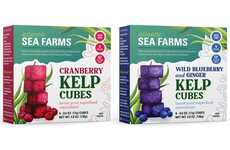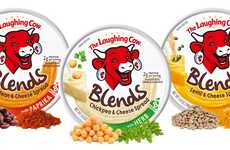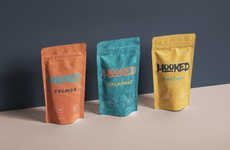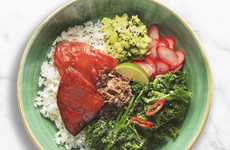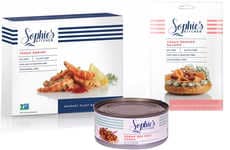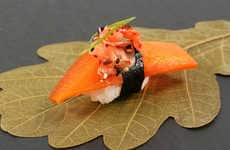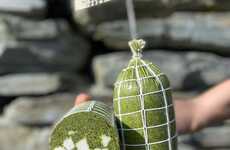



Vegan meat and seafood alternatives are being based in microalgae
Trend - Microalgae's many uses have now extended to imitation meat, with everything from fish to meat alternatives being based in microalgae. These products cater to vegan, vegetarian or flexitarian diets while prioritizing sustainability.
Insight - One of the reasons why alternative foods have become popular even among consumers who aren't vegan or vegetarian is that they promote sustainable production. Alternatives to traditional forms of dairy and meat tend to be harmful to the environment, and the push for reducing environmental harm is making people turn to alternatives.
Insight - One of the reasons why alternative foods have become popular even among consumers who aren't vegan or vegetarian is that they promote sustainable production. Alternatives to traditional forms of dairy and meat tend to be harmful to the environment, and the push for reducing environmental harm is making people turn to alternatives.
Workshop Question - How could your brand make sustainable living easier for its customers to achieve?
Trend Themes
1. Alternative Proteins - Microalgae is being used as an ingredient to create a range of plant-based seafood and meat alternatives, prioritizing sustainability.
2. Cultivated Meat - The use of microalgae scaffolding to create cultivated meat offers a sustainable alternative to industrial farming, challenging traditional meat production.
3. Underutilized Marine Sources - Innovative companies are using underutilized marine sources as ingredients to create plant-based seafood products, such as seaweed and kelp.
Industry Implications
1. Food & Beverage - The food and beverage industry can explore the use of microalgae as an ingredient to create a range of alternative protein products that appeal to environmentally conscious customers.
2. Agriculture - Cultivated meat offers a new form of sustainable agriculture, allowing for meat production without the negative environmental impact of traditional farming methods.
3. Seafood - Underutilized marine sources, like seaweed and kelp, can be used as ingredients to create plant-based seafood alternatives, supporting a more sustainable future for the seafood industry.







